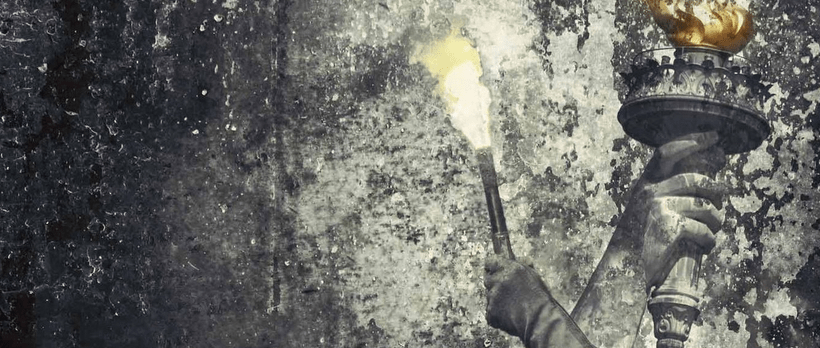The Post-Truthiness of ‘Westlessness’
There’s another favourite word to add to our expanding lexicon of Orwellian, new world order gibberish.
Lisa Van Dusen/For The Hill Times
February 19, 2020
In a recent, pre-coronavirus column on how China was marking the Year of the Rat by cracking down on satire, I lamented that the new world order cabal I like to call KAOS makes up for in performative hyperdrama what it lacks in comedy writers. Apparently, in the weeks since, they’ve found a pro and produced a masterstroke of comedic genius.
While it’s impossible to say who wrote it, its holophrastic assonance evokes Stephen Colbert’s “Truthiness”; it has the transcendent absurdity of a Monty Python punch line, the brilliant inanity of a Mel Brooks Broadway musical title. It is, we hope, what Phoebe Waller-Bridge has punched up the script for the new Bond film with as a crackpot world domination threat hissed by a lunatic.
Readers; from the fabulist vocabulists who brought you “post-truth”, “illiberal democracy” and “alternative facts,” please welcome “Westlessness” (You’re right, it feels like it needs an exclamation point, especially as a musical). Please welcome: “Westlessness!” Westlessness is neither a cardinal direction disorientation disorder, nor is it a skit about restlessness that mercilessly exploits rhotacism for laughs, as Peter Cook did as the clergyman in The Pwincess Bwide or Michael Palin as Pontius Pilate in Life of Bwian.
No, westlessness is the party crasher that overtook this year’s Munich Security Conference last weekend, unleashed by the organizers in the most spectacular display of tactical event-planner self-skunking since the Fyre Festival.
It first surfaced in a pre-conference report (as an editor, I can attest that the arbitrary capitalization and superfluous quotation marks that distinguish “Westlessness” in that report confirm its utter lack of seriousness). It was identified, possibly by a geopolitical affliction algorithm, as a pervasive yet mysteriously and broadly asymptomatic condition characterized by “a widespread feeling of uneasiness and restlessness in the face of increasing uncertainty about the enduring purpose of the West.” It graduated to a hashtag and now, with a few assists from well-placed, amenable headline generators, could be on its way to being a full-fledged thing.
As European Union Vice President Margrethe Vestager observed during one conference session: “I never thought about ‘westlessness’ before. Are we here discussing our own depression and asking the rest of the world to join in as a sort of collective mindfulness exercise? I really don’t get this.”
Meanwhile, U.S. Secretary of State and former CIA Director Mike Pompeo confronted the imaginary scourge of westlessness head-on, saying, “The West is winning.” (Just to be clear, he did not say it while gnashing his teeth and shaking a clenched fist at fate like a Batman villain, as you no doubt just visualized based on every single thing he and his boss have done since January, 2017).
The beauty of westlessness as a joke is that it shamelessly misdirects what is the increasing global concern about China’s rising influence, its role in the systematic degradation of democracy worldwide and the apparent, indispensable complicity in that degradation on the part of some Western politicians and institutions or, as Guardian diplomatic editor Patrick Wintour so elegantly put it in his westlessness piece, the emergence of “new centres of disruptive decision making.”
It ridiculously, ham-handedly diverts awareness of a phenomenon that presents the greatest threat to the values of democracy since World War II — including free, fair and legitimate elections, individual liberty, privacy, economic security, freedom of the press and every other aspect of “Westiness” we’ve taken for granted for decades — and makes a manufactured identity crisis both the decoy and the culprit.
What we have is not a problem of East vs. West. It is a problem of democracy vs. the interests pining and plotting for its demise.
Which, let’s face it, isn’t funny at all.
Lisa Van Dusen is associate editor of Policy Magazine and a columnist for The Hill Times. She was Washington bureau chief for Sun Media, international writer for Peter Jennings at ABC News, and an editor at AP in New York and UPI in Washington.

